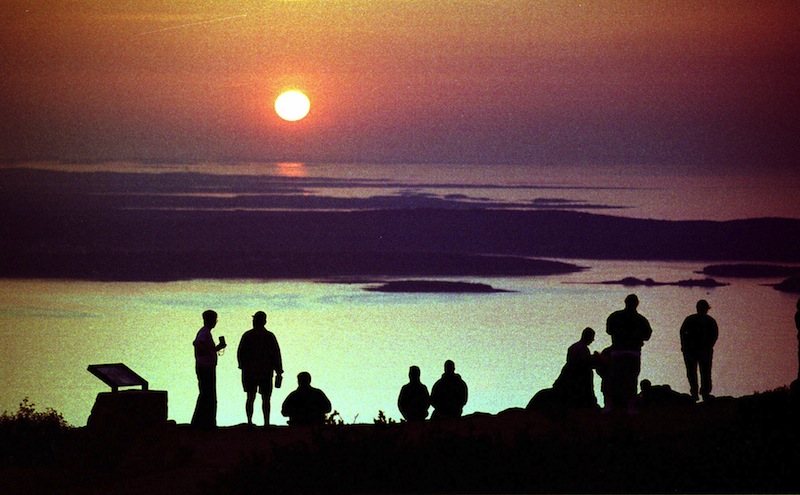BAR HARBOR — Administrators of Acadia National Park said Tuesday that they will open parts of the landmark vacation destination a month later than usual this season because of budget cuts, potentially disrupting a local economy that relies heavily on tourism.
The announcement disappointed Bar Harbor businesses facing a potentially leaner start to the season, and means that more than 150 temporary park workers stand to lose a month of pay.
Until the park fully opens May 18, the visitors center will remain shut, ranger staffing will be reduced, park guides will not give tours and access by car to Cadillac Mountain’s summit and three-quarters of the Park Loop Road will remain closed.
“There was no easy solution here,” said Len Bobinchock, deputy superintendent at Acadia, which drew 2.4 million visitors in 2011. “It put us in a no-win situation, because no matter what we do someone’s going to be unhappy.”
The curtailment is part of the automatic federal spending cuts that took effect March 1 after Congress and the president failed to reach a compromise on long-term government spending.
The park service is among the first agencies to feel the sting of the budgetary reductions, which target defense and discretionary spending, and do not take into account a program’s necessity or efficiency. The cuts would total $1.2 trillion over 10 years.
In 2011, the latest year for which figures were available, 2.4 million people visited Acadia. That influx of families and tourists has been a regional economic engine for Mount Desert Island and the town of Bar Harbor. The community’s thriving hotel, restaurant and recreational sectors are all connected to the drumbeat of tourist feet on the wooded trails, ledges and beaches at Acadia.
Supporting the visitors are more than 3,000 hotel rooms, 100 restaurants and dozens of other businesses in the Bar Harbor area, all of which depend in varying degrees on the 47,000-acre natural preserve.
“It’s not great news, that’s for sure,” said Chris Fogg, executive director of the Bar Harbor Chamber of Commerce, whose members represent mostly tourism-related business.
Fogg, who said tourism in town grew last year by 2 percent over the year before, was optimistic that the park will continue to be seen as a low-cost vacation alternative that helped it thrive during the recent economic downturn. Still, he and others said, every bit of traffic counts during the offseason.
“It’s such a short window of traditional visitation, any reduction of that really impacts the small-business community,” Fogg said.
The decision to close for a month at the start of the season, rather than later, made economic sense, said Bobinchock. He said about 200,000 people visit during April and May, far fewer than the 650,000 visitors in September and October.
The park has dealt with cost reductions since the 2011-2012 budget season, when $300,000 was trimmed from its coffers, Bobinchock said. This latest round trimmed $390,000 from the $7.8 million overall budget.
Unless Congress acts to restore the money, he said, it could be the new status quo for the park and the region.
But Stephanie Clement, conservation director for the nonprofit group Friends of Acadia, said this year marks a change in how the cuts affect the park experience.
“For the first time, we’re seeing visitor services being impacted,” said Clement, who stressed that the park’s essential features will remain accessible.
Gail Leiser, who runs the 140-seat Galyn’s restaurant on Main Street in Bar Harbor, said she fears that visitors who experience the park next month for the first time may be left less than dazzled by the reduced amenities — such as guided park tours and comfortable bathrooms — and therefore may be less likely to return.
“It not only affects my pocketbook now, but it could affect it for years to come,” said Leiser, expressing frustration with Washington gridlock, the effect of which has finally found its way to her business 700 miles away.
Julie Veilleux, who, with her husband, Greg, runs Window Panes, a home and garden store, said her business serves both the tourist segment and seasonal residents, but she was saddened by the cutbacks.
“I’m just hoping that people will find that there are plenty of other things to do here and still come up,” Veilleux said.
Matt Byrne can be contacted at 791-6303 or at:
mbyrne@mainetoday.com
Send questions/comments to the editors.



